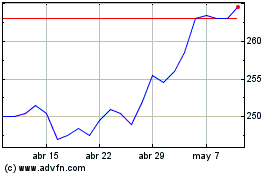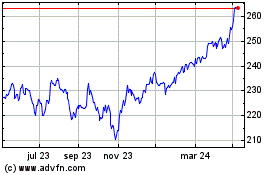TIDMWTAN
RNS Number : 6040O
Witan Investment Trust PLC
02 June 2020
Witan Investment Trust plc
2 June 2020
Witan's performance in 2020
Towards the end of 2019, investors began to factor in a 2020
revival in global cyclical prospects and, following the clear-cut
General Election outcome, an improvement in the UK market's
performance. These expectations were turned on their head by the
spreading COVID-19 epidemic in February, which caused a dramatic
fall in global equity markets. Our portfolio fell steeply in this
changed environment, so 2020 has been a disappointing time for our
shareholders, with our -17% total return to the end of May trailing
that of our benchmark (which has fallen 5%). Although our recent
investor updates and factsheets have referred to some of the
contributory causes, this report gives additional details of what
has driven this very poor performance and what we have, and have
not, done in response.
In broad terms, our 12% underperformance has been due mainly to
the underperformance of our underlying portfolio (9%), exacerbated
by being geared into a market fall (2%), with an additional 1%
being the cost of the early repayment of our 2025 6.125% Secured
Bonds.
Portfolio performance
Turning first to the portfolio, the causes of underperformance
have been various. We adopted a new and simpler benchmark from the
start of 2020, with a lower UK content (19%, down from 30%) and a
higher weighting in the US (46%, up from 25%). As a legacy from our
previous benchmark, our portfolio was heavily represented in the UK
and Europe and underrepresented in the US. In view of the reduced
political uncertainty in the UK and improving expectations for
economic growth outside the US, we decided, wrongly as it turned
out, to move only gradually to align our manager allocations to
reflect the more global structure of the new benchmark. This proved
costly, with the UK (-19% to the end of May) and Europe (-7%)
performing much worse than the US (+2%), which was boosted by its
high weighting in technology stocks, whose prospects were enhanced
by increased internet use during the COVID-19 lockdown.
Aside from this, our global managers, in the round, were
themselves underweight in the US, preferring the valuations on
offer elsewhere. Our managers had reduced their technology exposure
before 2020 on stock-specific and valuation grounds and were more
highly weighted in the stocks that had been expected to benefit
from 2020 being a better year for economic growth. These
expectations, as referred to earlier, were confounded by the
lockdown measures adopted to contain the COVID-19 epidemic.
Although technology stocks have understandably performed strongly
recently, it seems reasonable to expect a broader base of sectors
to participate in the stock market's recovery once the economies
that they depend on show clearer signs of pulling out of the recent
dive in activity.
Two of our global managers (Lansdowne and Pzena) were
particularly hard hit, having portfolios with significant cyclical
exposure. Our two UK managers (Artemis and Heronbridge) also
suffered from their exposure to domestic stocks and the poor
performance of the UK market. The portfolio of direct holdings in
investment companies was affected by specific concerns about a
minority of holdings allied to a general widening of investment
company discounts. Good relative performance by our other two
global managers (Lindsell Train and Veritas) and by GQG Partners in
Emerging markets was insufficient to offset the drag from the rest
of the portfolio, hence the lamentable overall portfolio
result.
Gearing
The reason we were geared in January, ahead of the COVID-19
crisis, was a belief that our managers had in aggregate a lowly
valued portfolio that stood to benefit from economic conditions
that (at the time) were widely expected to improve. When COVID-19
spread beyond China expectations changed dramatically, which turned
our gearing from a potential benefit to a burden on performance. We
reduced gearing from mid-February onwards but not as rapidly as,
with the benefit of hindsight, we should have. Being geared into
the rapid market fall cost us around 3% in performance, while being
geared into the subsequent market recovery has recouped 1% of
this.
We have used a lower average level of gearing since the crisis,
reflecting the less predictable economic outlook. As previously
announced, we decided to repay our 2025 6.125% Secured Bonds early,
in order to reduce interest charges and take advantage of the
greater flexibility offered by short term borrowings. The cost of
the early redemption was GBP23m (which equated to just over 1% of
our end 2019 NAV). Most of this will be recouped in the years to
2025 by the lower rates of interest (which are expected to persist)
for short-term borrowing and the ability to repay borrowings when
not used.
Our current level of gearing (7.9% at the end of May) will be
subject to adjustment according to our confidence in the economic
outlook and the value on offer in global stock markets. The
selective use of gearing has been a significant source of added
value for Witan over the years, notwithstanding occasions such as
early 2020 when it has amplified losses.
Our response
Just as it is important not to become complacent when
investments do well, one should avoid reacting to misfortune by
automatically selling what you wish you had sold earlier.
Nevertheless, after this period of unusually poor performance, the
Board has carefully examined the drivers of Witan's performance in
2020 and considered what changes arising from the COVID-19 lockdown
may be transitory and which may be permanent. A number of changes
have been made.
The manager structure has changed to reflect the more global
nature of our benchmark, with reduced use of regional managers and
a greater proportion of the portfolio in global mandates. As at the
end of May, we are still underweight in the US (with 38%) and
overweight in the UK (with 27%) but this is principally driven by
stock-specific decisions by our external managers.
We terminated the two Europe ex-UK mandates, in favour of making
greater use of unconstrained global managers able to choose between
European stocks and those in other regions. We have sold the global
systematic value portfolio managed by Pzena, with the majority of
the proceeds being held in a US equity index ETF, pending the
conclusion of a search for an additional more stylistically neutral
global manager.
The discounts of investment trusts, including our own, have been
unusually volatile in recent months. We have stepped up our level
of share buybacks, particularly during periods of wide discounts
such as March and May. This is accretive to NAV as well as
contributing to our objective of a sustained low discount or a
premium, which is in shareholders' interests.
There have been widely-publicised cuts in dividends by many
companies, including those held within Witan's portfolio. Growth in
our portfolio's income over time is a confirmation of its cash
generation and the progress made by the individual businesses,
although clearly the circumstances in 2020 are exceptional.
Although we are total return investors we recognise the importance
of income to many of our investors. Witan's revenue reserves at the
end of 2019 were equivalent to over 1.5 times the annual dividend
and the Company has announced that is prepared to draw on these
reserves if necessary in order to extend its record of 45
consecutive years of dividend rises.
Conclusion
Shareholders could be forgiven for thinking that Witan and its
managers had been afflicted with a reverse Midas touch - everything
we touch having seemingly turned to lead earlier in the year. The
impact is all the greater coming after a strong year in 2019. I
apologise to our shareholders for the poor performance experienced
so far this year. Rest assured that the Board and everyone at Witan
take the delivery of value for shareholders very seriously and this
year's setback is felt keenly, not least because we are
shareholders ourselves.
Witan's business model has delivered good returns for
shareholders in most years over the past decade and the Board is
confident that, following a poor showing during this especially
turbulent time, our managers will return to form, enhanced by the
changes made and the broader range of opportunities offered by the
benchmark adopted at the turn of the year.
Andrew Bell
Chief Executive, Witan Investment Trust plc
- ENDS -
For further information please contact:
Andrew Bell, Chief Executive
Witan Investment Trust plc
Tel: 020 7227 9770
Andrew.Bell@witan.co.uk
James Hart, Investment Director
Witan Investment Trust plc
Tel: 020 7227 9770
James.Hart@witan.co.uk
Alexis Barling, Director of Marketing
Witan Investment Trust plc
Tel: 020 7227 9770
Alexis.Barling@witan.co.uk
This information is provided by RNS, the news service of the
London Stock Exchange. RNS is approved by the Financial Conduct
Authority to act as a Primary Information Provider in the United
Kingdom. Terms and conditions relating to the use and distribution
of this information may apply. For further information, please
contact rns@lseg.com or visit www.rns.com.
END
STRKKDBQCBKDDAK
(END) Dow Jones Newswires
June 02, 2020 02:00 ET (06:00 GMT)
Witan Investment (LSE:WTAN)
Gráfica de Acción Histórica
De Mar 2024 a Abr 2024

Witan Investment (LSE:WTAN)
Gráfica de Acción Histórica
De Abr 2023 a Abr 2024
